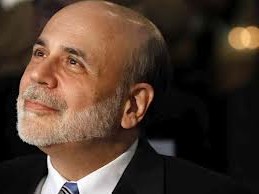By Alec Hogg
Among my most fascinating hours this year was a video interview with former US Federal Reserve chairman Ben Bernanke. It left a deep impression, as interviews with big picture thinkers often do.

___STEADY_PAYWALL___
Bernanke is justifiably proud of the outcome of critical decisions taken immediately after 2008’s Global Financial Crisis. His approach of consciously bailing out the system brought the global economy back from the brink, buying much needed time for market forces to slowly get the system back to equilibrium.
A critical part of the strategy sometimes missed, was to ensure the expensively acquired time was used to address the underlying cause of the crisis. That has been achieved through the massive piece of legislation that now applies to the financial sector called the Dodd-Frank Wall Street Reform and Consumer Protection Act. Provided the Act stays in place, it will ensure there is no repeat of the biggest economic challenge since 1929.
As systemic stability is always preferable to turbulence, a conscious approach of “kicking the can down the road” will always be an option when dealing with complex challenges. But a critical part of applying it is for the breathing space to be used to do the tough stuff. Without that commitment, any problem left unattended has a habit of getting much worse.
The British colonialists did not have the luxury of time when giving India its independence in 1947. At the time around one third of Indian land was owned by traditional leaders, through 562 independent Princely States some of which had survived for 2,000 years. The British convinced the vast majority of these royal families to voluntarily inject their ancestral kingdoms into the new Indian State which, in return, promised to pay them an annual stipend of 8.5% of what the assets would have earned.
When the complexities of the new South Africa was thrashed out in CODESA, traditional leaders here were an obviously thorny subject. But while the Indian kingdoms were often fabulously wealthy, with very few exceptions the South African equivalents were not. So although the challenge of incorporation into a modern, unitary state was equally as complex as in India, that particular can was kicked down the road to be dealt with later.
But the unattended sore is now starting to fester. Every so often public protests arise around the annual stipend of over R100m which taxpayers give to the most powerful of them, Zulu King Goodwill Zwelithini. But an even hotter potato is land ownership. Zwelithini, for instance, already administers one third of the land in KZN (2.8m hectares) through the Ingonyama Trust of which he is the sole trustee.
Hundreds of academic papers have been written on the subject of SA’s traditional ownership of land. None of them offer any easy solutions, not helped either by India’s 1971 reneging on that deal with its former royalty. This challenge is not going away. And is sure be thrust into the spotlight as political rhetoric over land gathers momentum.


